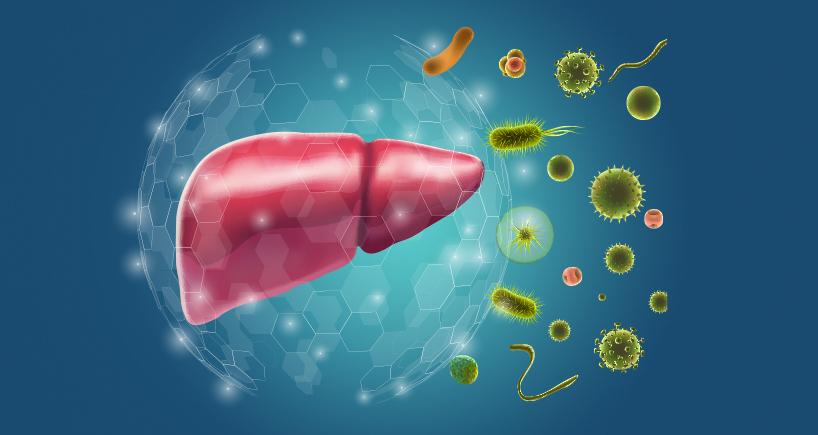
Autoimmune Hepatitis a non-infectious condition: Know its Symptoms, Causes and Treatment
Hepatitis is the inflammation of liver primarily caused by five viral strains such as A, B, C, D and E. In certain cases, it can be caused by alcohol consumption, drug reaction, genetic disorders or by stimulated immune system that attacks the liver which is known as autoimmune hepatitis (AIH). In this article let’s explore information on autoimmune hepatitis and its associated facts.
Autoimmune hepatitis (AIH) is one of the hepatic diseases. Its etiology and treatment vary from other viral hepatitis infections. An important feature of AIH is that it cannot spread as it is not an infection. Let’s understand more on AIH further.
What is Autoimmune hepatitis (AIH)?
Autoimmune hepatitis (AIH) or lupoid hepatitis is a self-mediated inflammatory liver disease which triggers when the body’s own immune system incorrectly targets liver cells, resulting in swelling and impairment. The subdivision of autoimmune hepatitis is type 1 AIH, type 2 AIH.
The hallmark of AIH is characterised by increased level of serum transaminase, immunoglobulin G levels, positive autoantibodies and interface hepatitis (necrosis of liver cells observed through histopathology assessment).
How common is the condition?
AIH is more prevalent among females in their middle ages, although the indication is considered an uncommon, the research reveals a rising occurrence, particularly notable within the Asian population.
Causes of AIH
As per research the exact cause of autoimmune hepatitis is unknown. However, study indicates certain genes, environmental, immunologic factors and some medications can trigger AIH.
Symptoms of autoimmune hepatitis
The symptoms of autoimmune hepatitis may range from mild to moderate which include:
- Jaundice
- Fatigue
- Nausea and vomiting
- Joint pain
- Poor or Loss of appetite
- Dermatological issues such as skin rash, itching, psoriasis, vitiligo and acne
Many individuals who suffer from autoimmune hepatitis do not experience any symptoms initially. In such instances the doctor may identify indications of liver complications through specific examinations. Let us understand some of the specific tests related to it.
Diagnosis of Autoimmune Hepatitis
The consultant healthcare expert will perform a physical exam and advise liver function test to evaluate the evidence of hepatic disease. Additionally, the doctor may recommend liver biopsy and ultrasound scan to diagnose detailed viral infections and other hepatic diseases.
What are the complications of AIH?
Some individuals who are asymptomatic at the time of diagnosis may start experiencing symptoms later. If untreated they may develop complications associated with liver cirrhosis. Symptoms of such complication includes:
- Haematemesis (Blood vomiting)
- Fatigue
- Jaundice
- Edema or swelling of joints.
- Hepatic encephalopathy (Development of toxins in the brain)
- Liver cancer
Risk of other conditions with autoimmune hepatitis
Individuals diagnosed with autoimmune hepatitis are at risk to develop other conditions such as rheumatoid arthritis, type 1 diabetes, inflammatory bowel disease, thyroid conditions and celiac disease.
Treatment of autoimmune hepatitis
The management of autoimmune hepatitis is to normalize the elevated biomarkers which is decided by the physician based on histopathological and other associated tests. Depending on the severity, the doctor may prescribe medicines for specific duration to control the symptoms.
How long does the treatment last?
The aim of the treatment is to induce a state of remission in the disease. The American Association for the Study of Liver Diseases suggests that it is advisable to remain on steroids for a minimum of three years prior to cessation. When there is an amelioration of symptoms, the administered dosage may be reduced, and supplementary treatment may be introduced. Although it is possible to manage autoimmune hepatitis in most cases, a complete cure is not attainable. Consequently, most patients will necessitate prolonged administration of medication, ranging from several years, and in some instances, it may be for lifetime. Hence, it is strongly recommended to consult a healthcare provider for any treatment-related concerns. Moreover, it is advised against independently discontinuing any medications. Always seek guidance from your doctor to address any doubts and prevent potential serious complications.











